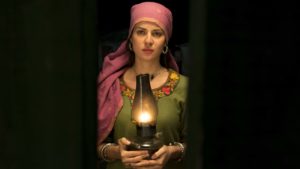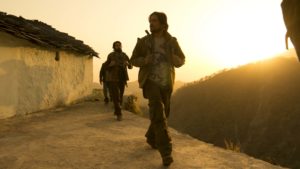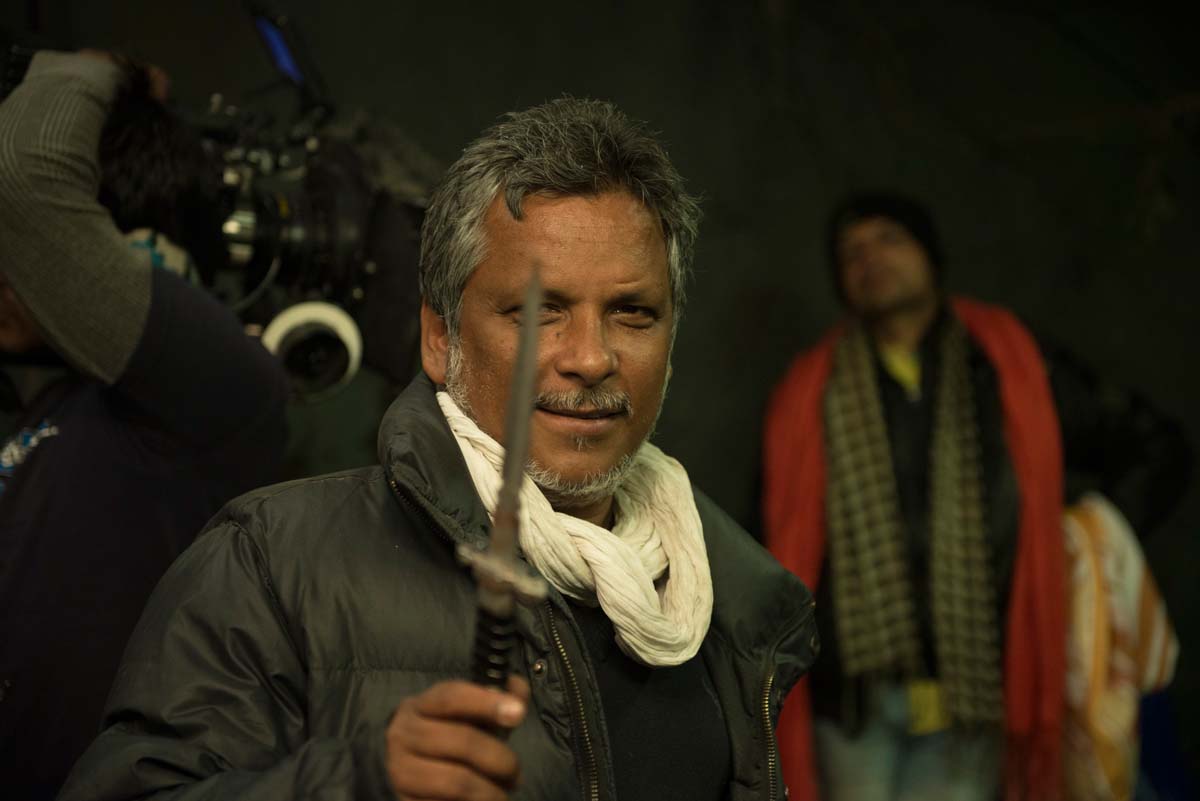The brutality faced by women in conflict zones gets a voice in writer-director Sudipto Sen’s upcoming film
Writer-director Sudipto Sen’s upcoming film ‘Aasma: In the name of Jihad’ explores the dark side of the Kashmir crisis from the perspective of a helpless Kashmiri girl who gets kidnapped by four armed cross-border militants one night. They want to ravage her modesty and leave her to die before embarking on their suicidal missions the next morning.
It was while working on his previous film, Akhnoor, that Sen got the inspiration to make Aasma. “I happened to reach a remote Himalayan hamlet near the Indo-Pakistan border in the picturesque northern Indian state of Kashmir. The story of the apparently serene and tranquil village sent an cold chill down my spine. They still make me shiver. The chilling fact of the villages is that females above 12 years of age are raped, often repeatedly, mostly by the cross-border terrorists or by few miscreants of the Indian Army. The muted anger and dried tears in the eyes of the women folks will not let you be the same person,” reveals Sen.
He mourns the fact that universally the worst sufferers are always the women living in the conflict zones. “Nobody knows the name behind the veils, nobody sees the beaten and bruised heart, and no one bothers about their human rights. Be it Kashmir or Syria, Iraq or Turkey, El Salvador or Nigeria, Sudan or Bosnia, the story of the women remains the same,” sighs Sen.
Excerpts:
Despite your film’s picturesque setting you have mostly shot your film in the night and a large part of it is set indoors. Tell us about the creative vision behind this choice.
It is a film that tells a story of what unfolds on one evening; it’s set in one of the villages of the Upper Shivalik Himalayan region near the Indo-Pakistan border. Shooting outdoors in this region is definitely a dream for filmmakers and photographers. You just need to switch on the camera – and you will forget about switching it off. Poetry on the screen would be written on its own. Difficult part was to create a similar milieu at night. The biggest challenge was to create the indoor magic for the world’s most picturesque war zone and that is Kashmir. Be it the house of the doctor where the militants assemble or the abundant British bunker, in reality, there will be only one light source—that is the light of a petromax/paraffin lamp. Creating that one-source light was the biggest challenge. And, you have to understand, it is a continuous story of just a few hours in confinement. Hence, the light continuity mattered most. Also, it is an intense drama and so we had to work mostly with close-ups which made our life more difficult. Going away from the convention of indoor lighting, we wanted to keep the look of the war zone all through the film. I and my DOP, Shanti Bhusan Roy, studied the light techniques for such sequences intensely. Finally, what we have is this unusual, uncharacteristic look evoking something sad and disturbing.

Aasma eschews taking a side and severely castigates the Indian forces as well as the militants for their actions in the Kashmir Valley. What makes you take this neutral stand?
Let me tell you that I am a patriot and nationalist like every true Indian. And, my sense of nationalism is non-negotiable. A country is made of its inhabitants – with people like us. If my fellow countrymen cry and no one comes to wipe off their tears then as an artist and a storyteller it is my responsibility to show the harsh truth. Now, I have visited many villages situated in the border areas such as Doda, Kisthwar, Akhnoor, among many, where it’s difficult to find any girls above 12-years of age who are not raped in the summer months when their men-folk go to the higher reaches of the mountain for cattle grazing. For 3-4 summer months, women live there unguarded, without any menfolk at home. That is the time miscreants come to the villages to rape women. One day the militants will come and the next day the army will come for enquiry and some miscreants amongst them will do the same thing like militants. I have seen their tears — dried and unwiped tears. It’s absolutely devastating to see these speechless, expressionless women of Upper Shivalik Himalayas.
Ever since Article 370 was abolished, the situation in the Kashmir Valley has remained quite uncertain. What according to you is the way forward to restore peace and normalcy in the valley?
The fact of the matter is that many wrongs have been inflicted to Kashmir. And, it has been so since 1947. And, sadly, to undo those wrongs – more wrongs are being committed. Now, in this political hara-kiri, Kashmiri people have suffered most. They are always last in the list of priorities. History is witness that whenever any change has been planned, any policy has been made without considering the aspiration of the people that policy or planning, it has proven to be a non-starter. If abrogation of Article 370 is for the people of Kashmiri people, then what are those 80,000 security forces doing there?

A lot of the Indian films dealing with Muslim characters in recent times have been accused of Islamophobia. Do you think Islam and Muslims have become soft targets? How conscious were you about this while writing the screenplay?
To me, politics of religion is the worst possible thing for any nation — be it minority politics or majority politics. Politics of majority is worse, because it gives birth to supremacists and this can have dangerous repercussions. Since 9/11, a social and political conspiracy was hatched and the saddest part is somehow Islamic world has surrendered before this conspiracy and meticulously planned infliction of Islamophobia. Sadly, not a single individual has risen to say that Islam has nothing to do with terrorism. Islam is a beautiful philosophy of peace and humanity. But in the hand of pimps of the religion, a monster has been created in the name of Islam: Islamic terrorism. The threat now is direct. The world has been distinctly divided into two fragments—Muslim and non-Muslim. Islamophobia is the order of the day. The very existence of our civilisation is under a serious threat. The muted Aasma, my protagonist, and her night of tribulations raise a pretty straight question: What is the true meaning of jihad? I felt the responsibility and so I wrote the script.
Your release plans for Aasma have been delayed by Covid-19. Why have you avoided going for a digital release?
To tell you the truth, I don’t want my film to be watched on a mobile phone screen. We have worked hard for it. I have shown this film to a few senior level RSS leaders as well as to some Islamic scholars. Interestingly, all of them loved the film very much. We expect our film to bring changes to the human psyche. And, so, I really want people to see Aasma on the big screen with dedicated time and space.
(Cover Image: Writer-director Sudipto Sen)




